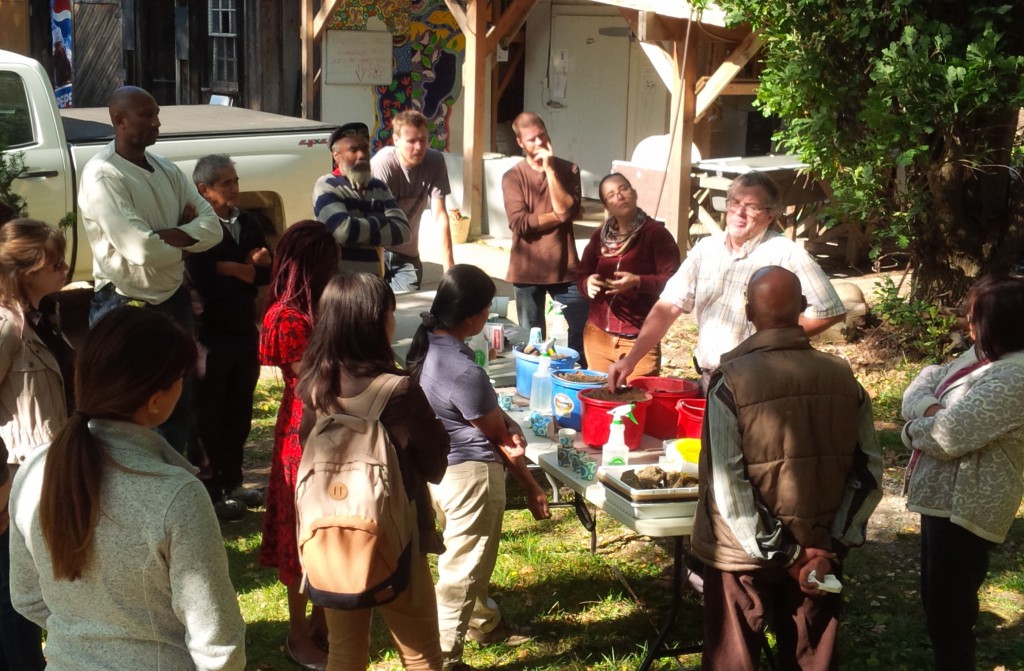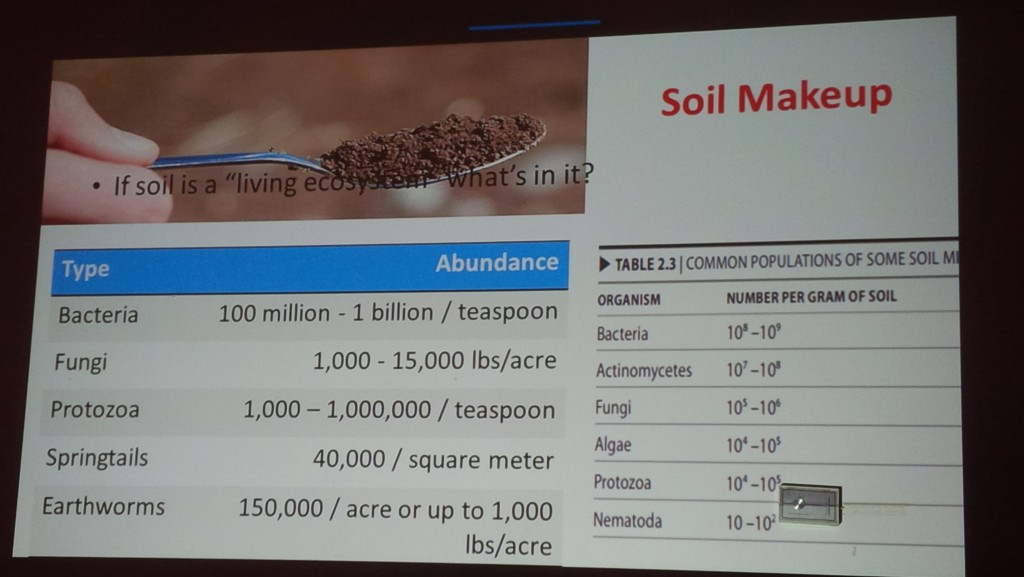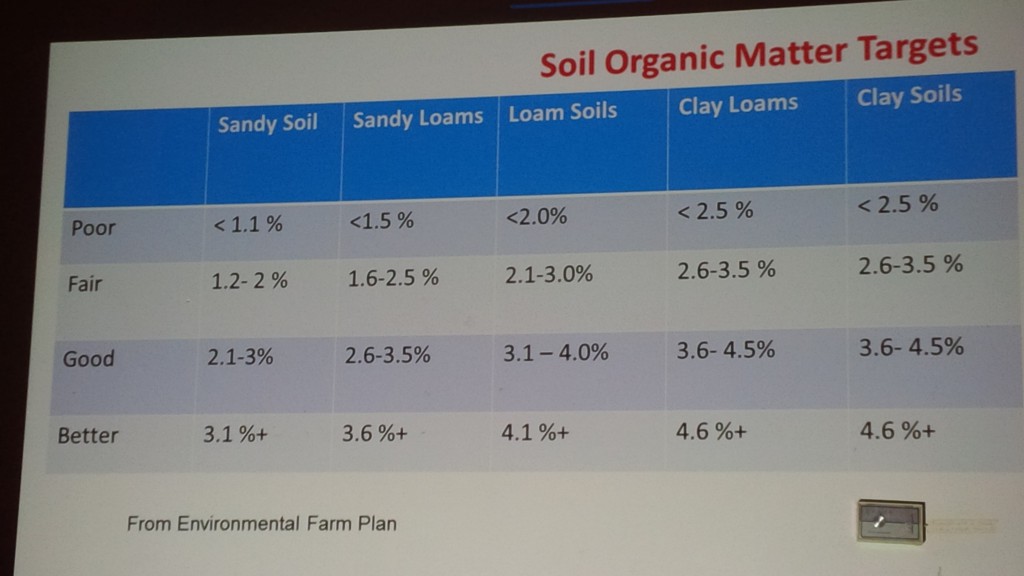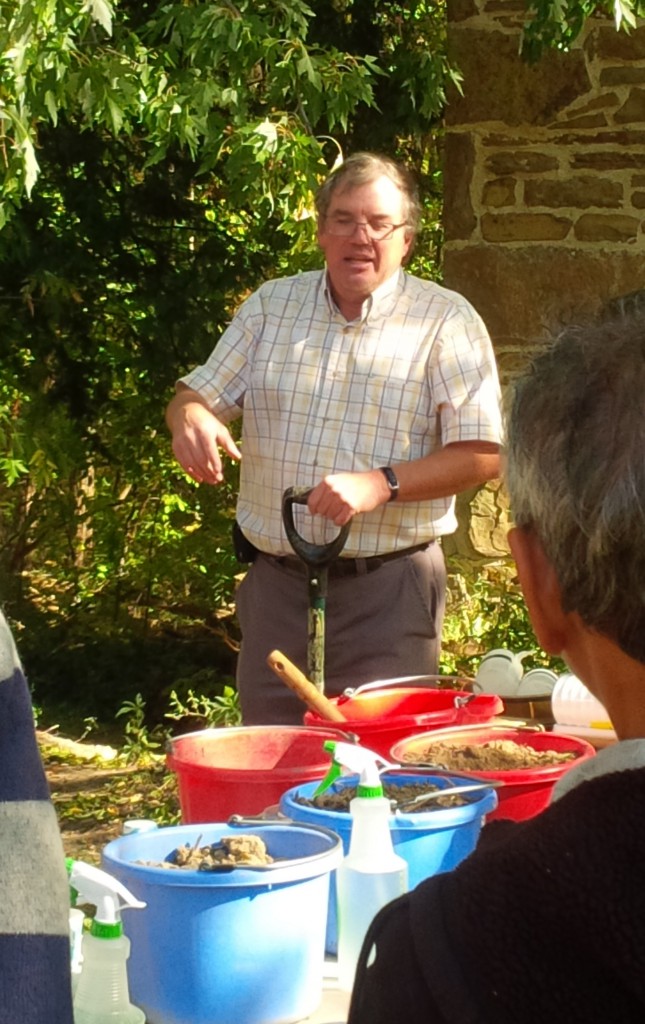 Last month, the Golden Horseshoe Food and Farming Alliance held a Soil Health Workshop for TRCA staff and farmers at Black Creek Community Farm in Toronto.
Last month, the Golden Horseshoe Food and Farming Alliance held a Soil Health Workshop for TRCA staff and farmers at Black Creek Community Farm in Toronto.
Before moving outside to dig our hands into a soil texture exercise, attendees listened to an informative presentation from Ian McDonald, Applied Research Coordinator for OMAFRA’s Field Crops Unit. Ian kicked off the presentation with the notion that a farmer’s primary job is to essentially capture sunlight.
“I believe in the art and science of farming,” Ian shared. “You can make all of the right decisions one year and have success on a farm, but those same decisions can lead to a failure the following year due to changes in conditions.”

 At the centre of the morning discussion was the question: How do you efficiently grow and be productive? Farmers anywhere and everywhere can tell you that soil is the foundation for growing (figuratively and literally). Thus, the ‘Soils 101’ portion of the workshop focused on the components of soil, the role of healthy soils, and the various elements that can affect soil quality.
At the centre of the morning discussion was the question: How do you efficiently grow and be productive? Farmers anywhere and everywhere can tell you that soil is the foundation for growing (figuratively and literally). Thus, the ‘Soils 101’ portion of the workshop focused on the components of soil, the role of healthy soils, and the various elements that can affect soil quality.
The workshop discussed soil properties, chemical & biological components, textures and nutrients, and the interaction of these aspects of soil in a farm management system. A hands-on exercise focused on soil types in relation to management decisions; for instance, demonstrating how damp soil is more susceptible to compaction. And a video discussed how water moves in and through soil. Other topics included Agriculture & Sustainability, Risk Management, and the Dynamics & Complexity of farming, which considered various factors from inputs to insurance.
A second hands-on exercise centred on soil sampling. Soil test information allows you to ‘know what you have’ and to make good decisions when it comes to managing your soil, but collecting a good soil sample is key.  Workshop participants learned how to collect a good soil sample and what equipment to use, how to manage that sample for proper submission to the lab, and where to collect soil samples in the field to ensure good representation.
Workshop participants learned how to collect a good soil sample and what equipment to use, how to manage that sample for proper submission to the lab, and where to collect soil samples in the field to ensure good representation.
The workshop also highlighted some changing trends: while tillage, equipment size & weight, field size and row crops are rising – livestock production, forages & pastures, manure, and rotation complexity are decreasing across the landscape.
Ian pointed to some soil health solutions: residue management, diverse crop rotations, cover crops, organic amendments, and reduced tillage, which can all help build resilience into soil systems.
Resilient systems, Ian reminded, are better able to recover and manage changes.
Thank you to all who attended the workshop, and to Ian for sharing his knowledge and expertise.
For more information, check out the following resources:
Soil Health
http://www.omafra.gov.on.ca/english/environment/bmp/soil-health.htm
Cover Crops
http://www.omafra.gov.on.ca/english/crops/facts/cover_crops01/cover.htm
http://www.omafra.gov.on.ca/english/crops/facts/cover_crops01/cover_types.htm
http://mccc.msu.edu/selector-tool/
Soil Sampling
http://omafra.gov.on.ca/english/engineer/facts/06-031.htm
Ontario Soil and Crop Improvement Association
https://www.ontariosoilcrop.org/
https://oscia.wildapricot.org/page-1862576 – to learn more about soil health, you can also sign up here for a list of upcoming events

